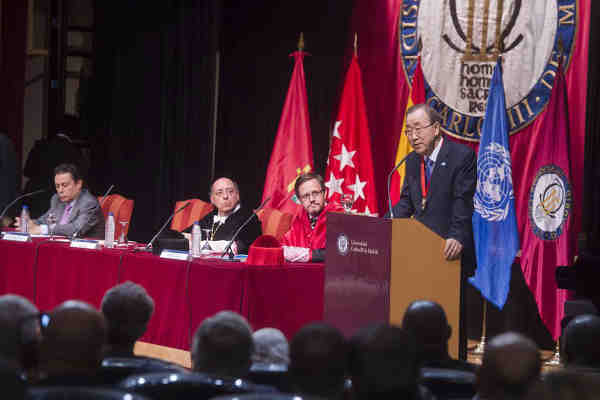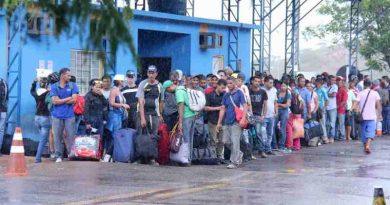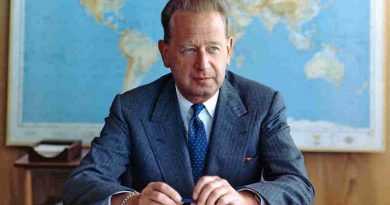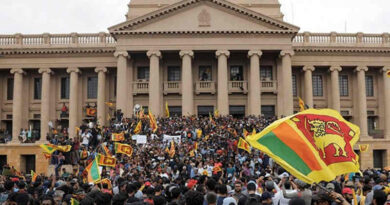Can United Nations Prevent Terrorism?

Despite the world’s best efforts, “terrorism is on the march” and the violent ideas that fuel it are spreading, United Nations (UN) Secretary-General Ban Ki-moon warned Wednesday.
He told delegations gathered for a global dialogue in Madrid that a unified, multi-dimensional and rights-based response is required to wipe out the scourge.
“Violent extremism poses a direct threat to international peace and security,” Mr. Ban said at the Club de Madrid’s ‘Madrid+10: the Global Dialogue on Preventing and Countering Violent Extremism.’
“Extremist groups – such as Da’esh [Islamic State of Iraq and the Levant, or ISIL or ISIS], Al Shabaab and Boko Haram – undermine universal values of dignity and the worth of the human person. They reject the call of the United Nations Charter to practice tolerance and live together in peace with one another as good neighbours.”
Important Note
The UN Secretary-General and other top UN officials are doing nothing to stop terrorism and other crimes except issuing statements which are utterly useless and meaningless. The UN officials are concerned only about their own luxurious lifestyles.
In the given situation, the UN member countries must challenge the role of this intergovernmental organization and stop financing it. All the funds given by the member states are being squandered by the UN which is now overstaffed with unskilled officials. Believe me, the UN has lost its relevance.
Noting that terrorism is a global threat, he said that he commended the lead Spain had taken against terrorism and violent extremism, its support for the victims of terrorism, and its Presidency of the UN Security Council this month.
“Spain has suffered terrorism from within its society, and attacks inspired from beyond its borders,” he continued. “We will never forget the train bombings in Madrid on 11 March, 2004, that killed 191 people and wounded 1,800 more.”
The Secretary-General referred to the Club de Madrid’s establishment of the International Summit on Democracy, Terrorism and Security a year after the bombings, where political leaders and civil society developed the Madrid Agenda to confront terrorism through a global democratic framework.
[ No Democracy in India. It Is Parliamentary Dictatorship. ]
Also at the summit, he said, the key elements of what would become the UN Global Counter-Terrorism Strategy were announced by the then-Secretary-General, Mr. Kofi Annan. The strategy was adopted by the UN General Assembly in 2006.
Mr. Ban said that he would be presenting his Plan of Action to Prevent Violent Extremism in the months ahead, which will call for governments, society and the UN to address the drivers of violent extremism at global, regional, national and local levels. The plan, he said, will also put forward recommendations on how to support Member States, noting that one important priority will be youth engagement.
“Young people are the main targets for recruitment by violent extremist groups,” he said. “But they can be our best allies to promote understanding.”
He also mentioned other initiatives, such as engaging with religious leaders, as well as the United States-led countering violent extremism process that culminated in September with the Leaders’ Summit convened by President Barack Obama on the margins of the General Assembly.
💛 Support Independent Journalism
If you find RMN News useful, please consider supporting us.




